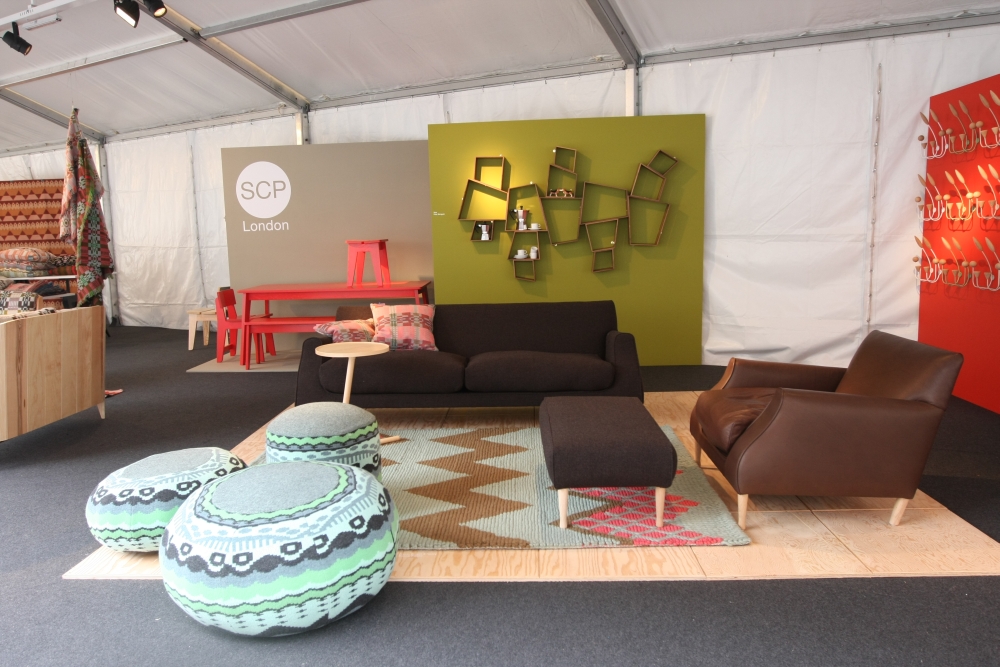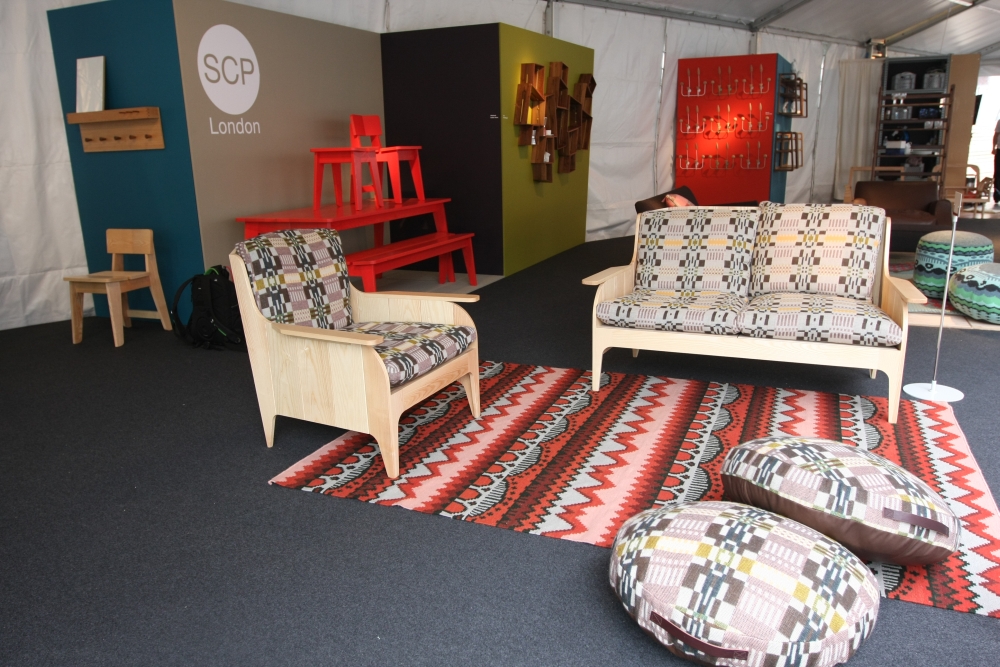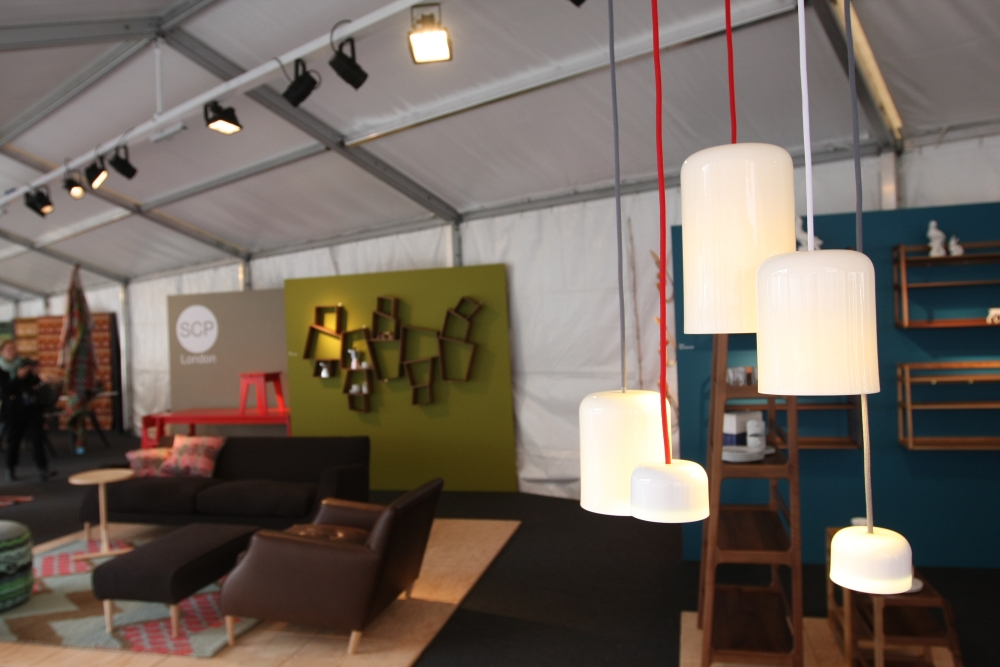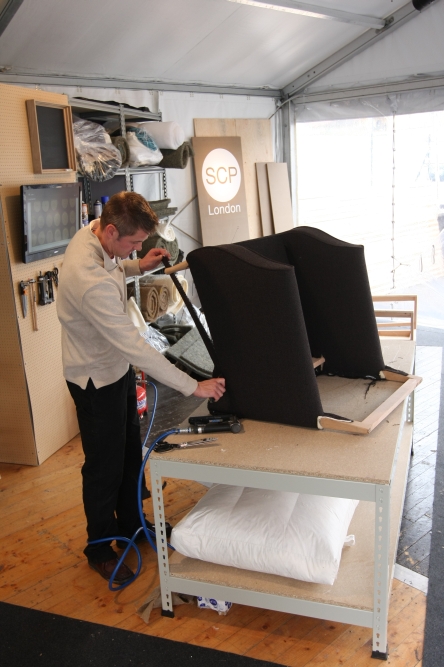Talk to anyone about design and the furniture industry in the UK and you'll quickly come to realise that while the British Isles may be home to an enviable wealth of design talent. It ain't home to that many producers of quality, contemporary furniture. Or at least anymore.
Whereas, for example, the early years of "British Design 1948-2012. Innovation in the Modern Age" at the V&A feature regular examples of British produced furniture, the later years are all but bereft of such.
Britain being, as Edward Barber so neatly put it, a post-industrial nation of estate agents and bankers.
There are however a few brave foot soldiers still fighting the good fight, such as London based SCP.
Founded in 1985 by Sheridan Coakley, SCP were the first company to commercially produce Japser Morrison's work, and also gave a young Royal College of Art graduate who was working in Morrison's London studio at that time his first contract. Konstantin Grcic.
In the course of the past quarter century SCP have not only gone on to co-operate with British design luminaries such as Tom Dixon or James Irvine, but have also built-up an impressive roster of young designers including Gareth Neal, Donna Wilson or Peter Marigold.
With their focus on what one could call "traditional crafts", SCP are never going to be a company that push the limits of innovation. But much like Rui Alves, that's not really their goal. Their goal is, as they themselves say, "... [to] create functional and beautiful products that are built to last"
And that they do very well.
Consequently, as part of our small if wholly unscientific exploration of the current state of the British design, and for all British furniture design, industry we caught up with Sheridan Coakley at MOST Salone in Milan to hear his take on the current and future potential for contemporary furniture production in the UK.
(smow)blog: Walking round "British Design" at the V&A one finds very little furniture produced in the UK after the mid-1960s. Are you a dying breed?
Sheridan Coakley: We are a breed that died! Furniture production in the UK died after the war and never really recovered. The industry was decimated by the war and those companies who survived did so because, like a lot of British industry, they thought the only way to compete is to produce things cheaply. Which is of course a fatal mistake, trying to compete with cheaper, Eastern producers. By the time people realised that was the wrong way to go, the only option left was to go niche. And so the survivors are those who have specialised. There's still a few companies involved, for example, in contract office furniture, but in general I think furniture production in the UK has gone. Which is a real shame.
(smow)blog: You established SCP in 1985. Looking back over the years would you say it is getting easier or harder as a UK producer?
Sheridan Coakley: For us it's getting easier, but that's largely because of our experience. But also contemporary furniture is more the norm now in the UK, which certainly wasn't the case when I started. Back then it was all sofas with pelmets and reproduction antiques; the professional classes bought antiques because they liked the idea of almost pretending they had inherited the furniture. It was the days warm beer and cricket. But it's radically changed since then and nowadays contemporary furniture is much more widely accepted and bought.
(smow)blog: And looking forward....?
Sheridan Coakley: The design industry is very strong, always has been, and certainly as long as I've been involved it's been British designers who've been at the forefront, so Jasper Morrison, Tom Dixon, Barber Osgerby, et al. But importantly there is, at last, an understanding in the Government that manufacturing is good. 10 years ago manufacturing was bad and we should all do something else. Now manufacturing is good. So maybe long term there is a glimmer of hope of it all picking up again. Look at Formula One, for example, which is totally dominated by British engineering and specialist manufacturing.
(smow)blog: And does that mean that you yourselves have no problems finding partners in the UK to produce your products. Or is that a problem?
Sheridan Coakley: We have our own upholstery business which when we took over had four employees and now has twenty. Getting wooden furniture made economically in the UK is quite difficult and and will remain so unless companies invest massively in new machinery. But generally in terms of other partners you've just got to go and look for it, we, for example we do a lot of textiles which are woven in Wales, our ceramics are made in Stoke-on-Trent. The companies with whom we work with are in a way the end of their industries; but a lot are also becoming powerful small business again. Largely because there is so little real competition.
There are certain things we will never be able to do; but where modern technology, specialist engineering or traditional crafts are involved, I see no major problems.



